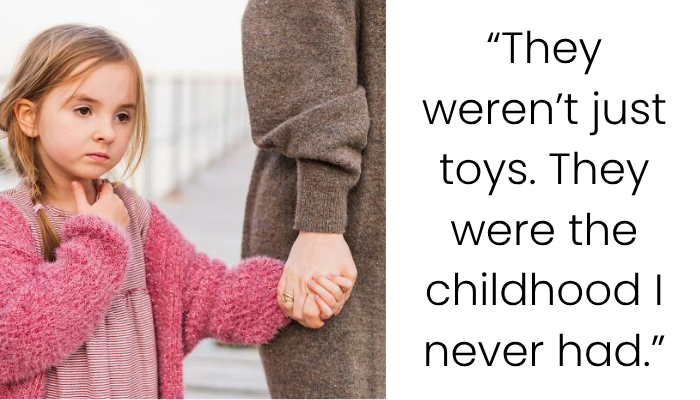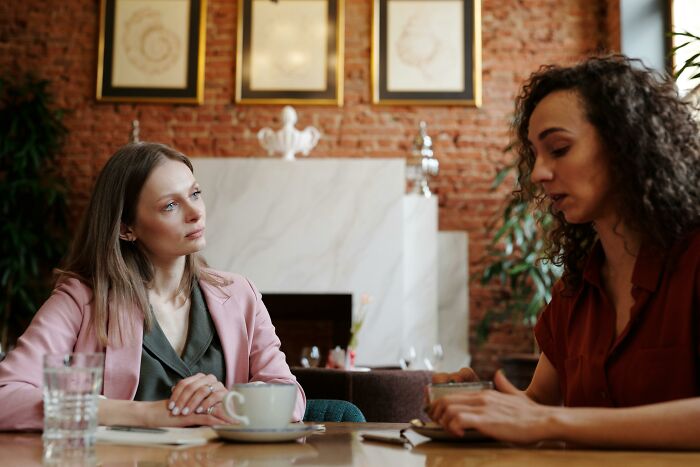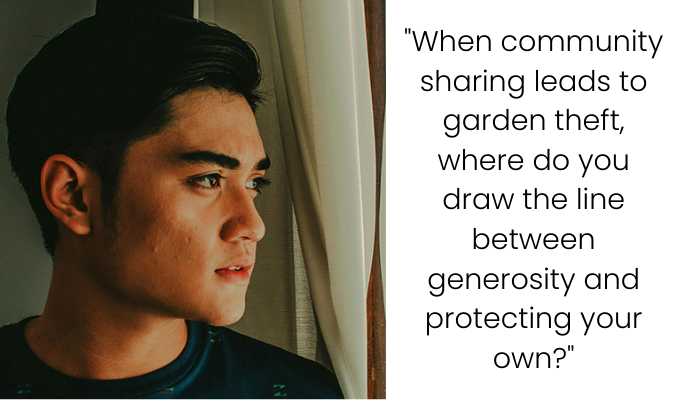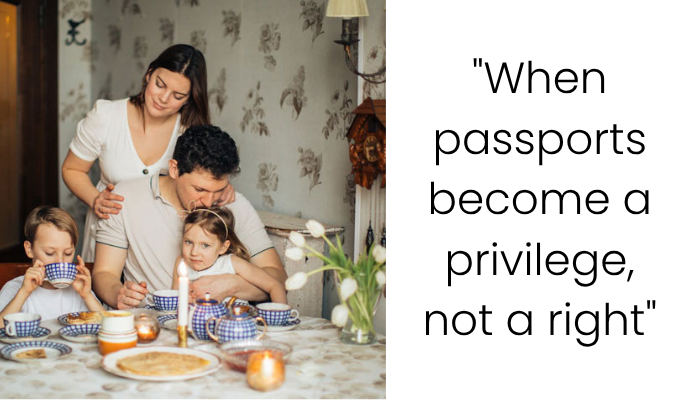I Refused to Give My Toys to My Fiancé’s Nieces – Now He Says I Need to Grow Up

In this heartfelt Reddit post, a 28-year-old woman shares her deep emotional attachment to a cherished toy collection—items she was unable to afford as a child growing up in poverty. Now a successful bank manager, she has dedicated a room in her home to these toys, which symbolize not just play, but victory over hardship and unfulfilled childhood dreams. When her fiancé Jack brings his sister Trisha and her two children to visit, the children are allowed to play in her toy room but eventually ask to take some toys home. She refuses, sparking backlash from Jack and Trisha, who criticize her for being “too old” for such a collection and urge her to give them to the kids.
What follows is a confrontation that touches on deeper issues—class differences, unspoken family tensions, and differing values around sentimentality and generosity. While the children were disappointed, and the fiancé upset, the poster sees the request as an intrusion on something deeply personal. Her stance is supported by her sister-in-law Rebecca but critiqued by her brother, who wonders if she’s repeating the exclusion they once suffered. As she prepares to confront Jack and explain the significance of her collection, she’s left questioning whether her refusal was selfish—or a reasonable boundary.
Advertisement – Continue Reading Below
Some folks collect mugs, others collect toys and emotional baggage

Advertisement – Continue Reading Below
One woman refuses to give her beloved toy collection to her sister-in-law’s kids, and is told to grow up after the kids start to cry

Advertisement – Continue Reading Below

Advertisement – Continue Reading Below

Advertisement – Continue Reading Below

Advertisement – Continue Reading Below

Advertisement – Continue Reading Below

Advertisement – Continue Reading Below

Advertisement – Continue Reading Below

Advertisement – Continue Reading Below

Advertisement – Continue Reading Below

Advertisement – Continue Reading Below

Advertisement – Continue Reading Below

Advertisement – Continue Reading Below
The Psychological Significance of Childhood Possessions
For individuals who grow up in poverty, toys and entertainment items often carry a significance that far exceeds their material value. Psychologists like Dr. Bruce Perry, who studies trauma and child development, note that unmet needs in childhood—especially around comfort, safety, and inclusion—often resurface in adulthood in the form of deep emotional attachments to symbolic objects.
The OP’s toy collection isn’t just nostalgia; it’s a reclamation. These items represent a childhood she didn’t get to fully live, dreams that were deferred due to financial hardship. She and her brother overcame systemic obstacles—mockery from wealthier peers, social exclusion, and limited resources—to achieve professional success. The toy room is not a quirk. It is, in many ways, a monument to resilience.

Advertisement – Continue Reading Below
In psychoanalytic terms, these toys could be considered “transitional objects”—physical items that help individuals process or complete emotional experiences. What’s different here is that the transition isn’t from childhood to adulthood, but from deprivation to abundance.
Are Boundaries Selfish—or Protective?
The heart of this issue lies in the question: Is it selfish to say no when your possessions carry emotional weight? From a relational standpoint, refusing children a toy may seem stingy, especially if one is financially stable. But emotional boundaries are as important as material ones. The OP explicitly allowed the children to play—showing generosity and trust. The refusal only came when they wanted to own something she holds dear.
Clinical therapist Terri Cole, author of Boundary Boss, argues that when people feel guilty about saying “no,” they often overextend themselves in relationships—especially women, who are socially conditioned to nurture. The OP’s ability to hold a firm boundary (“These are my things; I’m not giving them away”) is a healthy assertion of self-worth.
The Generational Divide in Value Systems
Jack and Trisha’s reaction—that she’s “too old” for toys—reflects a dismissive misunderstanding of both the emotional and symbolic importance of the collection. To someone raised in relative comfort, toys may have been abundant and disposable. But for someone who faced ridicule and exclusion, every item in that room represents dignity restored.
Advertisement – Continue Reading Below
This disconnect underscores a deeper cultural and emotional rift in the relationship. Financial background shapes how we view possessions: Are they sentimental, practical, or disposable? And when those views clash, resentment can brew.
Jack’s cold-shoulder treatment and escalation into an argument suggests he’s either unwilling or unready to understand the emotional terrain the OP inhabits. In any healthy partnership, especially one headed toward marriage, empathy for one another’s past is crucial. The OP isn’t just holding onto toys—she’s holding onto a version of herself that fought hard for joy.
Entitlement vs. Generosity: When Guests Overstep
Trisha’s expectation that her children be given toys from a private collection touches on a common but contentious issue in family dynamics: entitlement under the guise of sharing. The OP didn’t invite them for a shopping trip; she opened up her home and offered playtime—a generous act in itself.
When the children demanded toys, Trisha’s response wasn’t to redirect or discipline them but to support their request. This is a failure in parenting etiquette. Even in upper-class households, it’s a common rule to teach children to appreciate others’ belongings without claiming them. The OP, despite coming from a background of scarcity, was taught this.
It also reveals the subtext of Trisha’s passive-aggressive comments. By questioning the OP’s decor, lifestyle, and hobbies, she subtly undermines her achievements—possibly reflecting her discomfort with the OP’s success or background.
Advertisement – Continue Reading Below
The Gendered Politics of “Growing Up”
Jack’s suggestion that the OP “grow up” is not only dismissive but rooted in a gendered double standard. Men who collect sports memorabilia, vintage cars, or video games often receive admiration. Yet when women hold onto dolls or plush toys, it’s infantilized.
Pop culture figures like Mariah Carey and Miley Cyrus openly share their love of “childish” collections—and are celebrated for reclaiming joy. Why then, must a woman who owns a Barbie collection be told to grow up?
Moreover, Jack’s framing of the toy collection as incompatible with adulthood is ironic: these toys were never his. He is projecting his discomfort with her emotional expression onto a private matter. That raises the question—if he cannot respect her boundaries over toys, what happens when more significant disagreements emerge?
Advertisement – Continue Reading Below
Family Dynamics: Internalized Judgments
The OP’s brother offers a thought-provoking angle: Is refusing to share with kids repeating the exclusion they once experienced? While well-intentioned, this comparison doesn’t hold. In their childhood, exclusion was systemic—rooted in inequality, shaming, and mockery. Here, the children are not marginalized. They are economically secure and had access to the toys—just not ownership.

Advertisement – Continue Reading Below
Still, his point underscores how deeply class trauma can affect one’s perception of justice and sharing. Survivors of poverty often wrestle with guilt around abundance. Some over-share to compensate. Others, like the OP, protect what they’ve earned because it’s sacred.
Neither approach is wrong—but it’s important not to conflate emotional self-protection with cruelty.
Advertisement – Continue Reading Below
Moving Forward: Relationship Red Flags
As the OP prepares to speak to Jack about her childhood, this is a crucial moment. Healthy partnerships require understanding, not just love. If Jack cannot recognize or respect her emotional world—especially when it’s expressed so tangibly in her collection—that raises serious compatibility questions.
Rebecca’s support (her sister-in-law) shows that empathy is possible—even from those who didn’t share the same upbringing. Jack has a choice: see her collection as a quirk, or understand it as an archive of perseverance.
Netizens side with the woman, saying she is not the jerk in this story

Advertisement – Continue Reading Below

Advertisement – Continue Reading Below

Advertisement – Continue Reading Below

Advertisement – Continue Reading Below

Advertisement – Continue Reading Below

Advertisement – Continue Reading Below
No, OP, you are not the asshole. You are a survivor of economic hardship who found a way to honor your inner child. Your toy room isn’t clutter—it’s a sanctuary. It’s your reminder that you made it. And no one—fiancé, sibling, or child—gets to take that away.
Advertisement – Continue Reading Below






